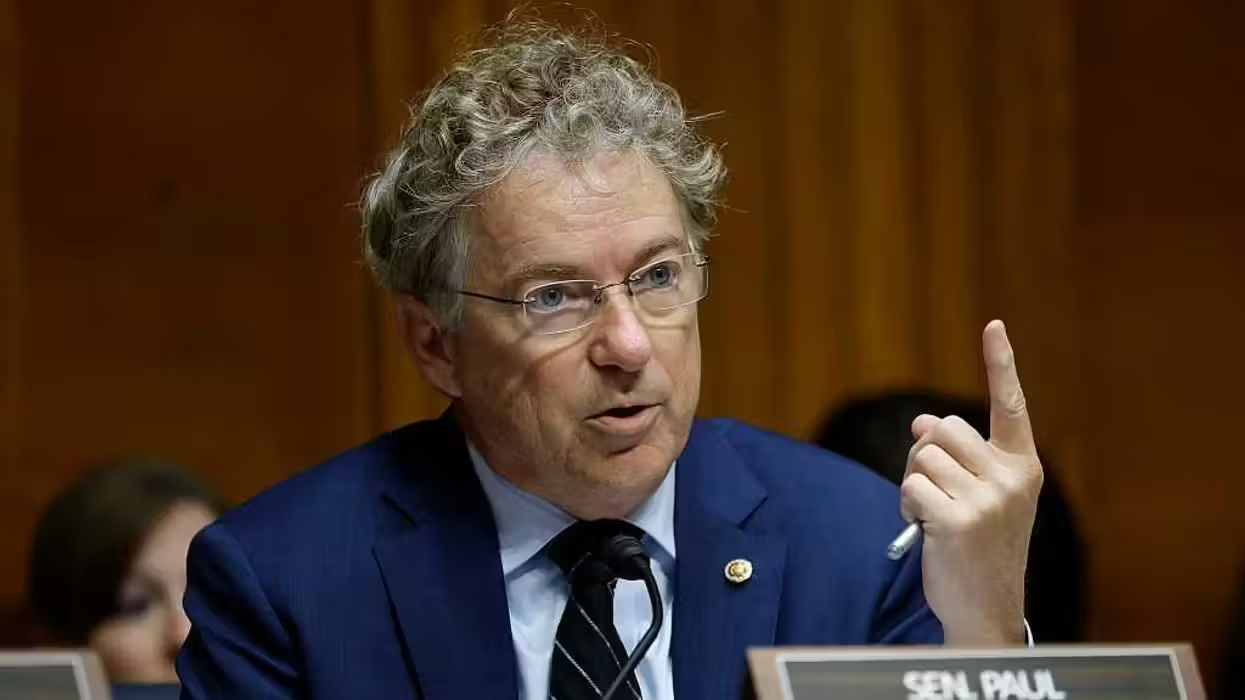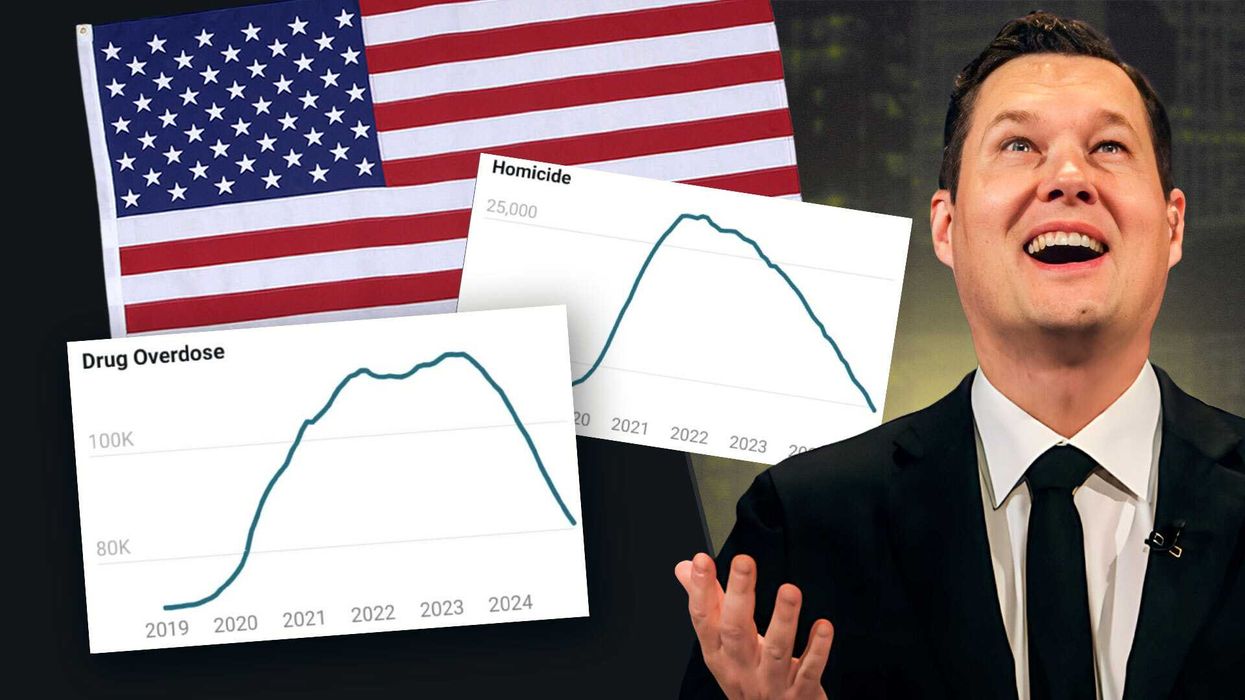
© 2025 Blaze Media LLC. All rights reserved.
GOP-Led States Work to Change Voting Rules Before the 2012 Election
September 19, 2011
"a rhetorical firefight"
COLUMBUS, Ohio (The Blaze/AP) -- After years of expanding when and how people can vote, state legislatures now under new Republican control are moving to trim early voting days, beef up identification requirements and put new restrictions on how voters are notified about absentee ballots.
Supporters say bolstering ID rules helps prevent fraud. And at a time when counties face tough budgets, they contend local elections officials don't have the money to keep early voting locations staffed and opened. Past investigations have added credence to some of these concerns:
Democrats claim their GOP counterparts are using midterm election wins to enforce changes favorable to Republicans ahead of the 2012 presidential election. They criticize such legislation, saying it could lead to longer lines in Democratic-leaning urban areas and discourage people from voting.
Below, hear some of the left-leaning arguments against the current changes being made in GOP-led states:
The process of changing voting rules may be nonpartisan on the surface but it is seething with politics just below the surface.
"We've had nothing short of a rhetorical firefight for years between the folks who are worried about fraud and folks who are worried about disenfranchisement - a firefight which is pretty much neatly broken down between the two major parties," said Doug Chapin, an election expert at the University of Minnesota.
While states typically adjust voting rules ahead of presidential elections, this year provides an opportunity for new Republican governors and GOP majorities to legislate on election issues.
Put simply, Chapin said: "What's happening in 2011 is just as much about what happened in 2010."
New voting rules recently cleared state legislatures in what have traditionally been presidential battlegrounds, creating partisan rancor.
Plans to reduce the number of days to cast an early ballot cleared the Republican-controlled swing states of Florida, Ohio and Wisconsin. Legislatures in Georgia, Tennessee and West Virginia also lopped off advanced-voting time. North Carolina has a pending proposal. And Maine has done away with a policy that allows people to register at the polls on Election Day before casting ballots.
Each party, when in control, seeks to rewrite the rules to its electoral advantage. Below, hear Anita MonCrief, a former ACORN employee, explain how the organization purportedly engaged in partisan activities that favored the Democratic Party:
(The above video is part one of MonCrief's talk; part two is here and part three can be found here.)
Although the reality may not be so cut and dried, both parties believe a looser voting regimen benefits Democrats because it increases opportunities for Hispanic, black, immigrant and poor people - harder to reach for an Election Day turnout - to vote.
Democratic voters held an edge in early voting during the 2010 elections, despite the unfavorable climate for the party nationally and the eventual Republican gains.
Voters in 32 states and the District of Columbia can cast a ballot in person before Election Day without having to give a reason.
Georgia and Ohio had some of the longest early voting time periods. Georgia had 45 days, while Ohio had 35. The new laws bring the two states closer to the typical timeframe, which is about two weeks before the election.
Considering all factors involved, these laws could hurt Democrats' electoral prospects. Below, watch a video that the Obama re-election campaign put out to help combat the Ohio law cutting back on the early voting period in that state:
The move to shrink the early voting window in some states comes as others have pushed to require voters to show a photo ID at the polls.
Five states - Kansas, Wisconsin, South Carolina, Tennessee and Texas - recently passed strict photo ID laws. At the beginning of the year, just two states - Georgia and Indiana - required that voters must show a photo ID in order to have their vote counted.
Other legislatures are rewriting their state's election laws in other ways.
Florida rolled back its early voting time to one week from two in an overhaul that also makes it more difficult for groups such as the League of Women Voters and the Boy Scouts of America to conduct voter registration drives.
Ohio's top elections chief, a Republican, acknowledged that changes to voting rules have invited an overreaction from each party.
"Both sides of the political spectrum have found it advantageous from a fundraising point of view, from a motivating their base point of view, to call into question the confidence in the election system," Secretary of State Jon Husted said in an interview.
While Ohio's overhaul bans local boards of elections from mailing unsolicited absentee ballot requests to voters, Husted has agreed to have the state send the requests to voters in all counties in 2012.
Ohio's law is not yet in effect, and opponents are working to get a proposed repeal question on the fall 2012 ballot. The legislation ignited debate early this summer on the floors of the state's GOP-controlled General Assembly.
Want to leave a tip?
We answer to you. Help keep our content free of advertisers and big tech censorship by leaving a tip today.
Want to join the conversation?
Already a subscriber?
Billy Hallowell is a digital TV host and interviewer for Faithwire and CBN News and the co-host of CBN’s "Quick Start Podcast."
Billy Hallowell
Billy Hallowell is a digital TV host and interviewer for Faithwire and CBN News and the co-host of CBN’s "Quick Start Podcast."
more stories
Sign up for the Blaze newsletter
By signing up, you agree to our Privacy Policy and Terms of Use, and agree to receive content that may sometimes include advertisements. You may opt out at any time.
Related Content
© 2025 Blaze Media LLC. All rights reserved.
Get the stories that matter most delivered directly to your inbox.
By signing up, you agree to our Privacy Policy and Terms of Use, and agree to receive content that may sometimes include advertisements. You may opt out at any time.






